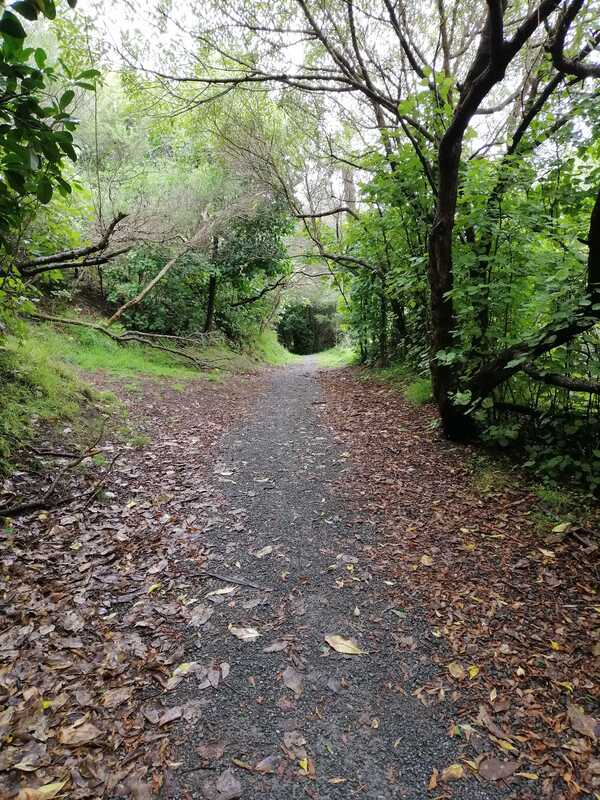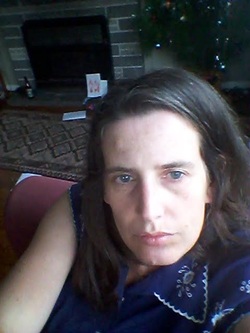|
So Helen Heath tagged me for the next big thing, where writers self-interview with 10 questions about their next project and then tag five writers to do the same. I'm pretty sure that means every writer in the galaxy will be tagged within 13 months. Here's me.
What is your working title of your book (or story, or project)? The Rope Walk, but it used to be called Sab. My writing group vetoed that and said it sounded like a car advertisement. Sab is actually an old Scottish dialect word for sob, and for the sound of the sea, and has all these gorgeous nuances, but they were right. Where did the idea come from for the book? I had an exercise in a writing class to write two poems in a single week, one an elegy and one a poem that answered the question 'What happened?', 'What Happened Next?'. I had read, sometime earlier, an amazing transcript of the diary of one of my ancestors last days in Scotland, so I spent hours hunting for it in the many boxes of paper around my house, but ended up just doing bits from memory and making up other bits. That felt liberating. That was the 'What happened?' poem, And then I wrote a companion piece which was also fictional, about a woman (married to my 'What happened?' character) and her experience of coming over to New Zealand on one of those early immigrant ships. And then I just kept writing these persona poems in the voice of members of the same fictional family but from different generations. What genre does your book fall under? Um, intergenerational persona poetry sequences that feature aerial performers, 19th century ropemakers and gloomy mountain cribs? Which actors would you choose to play your characters in a movie rendition? As far as I'm concerned Jennifer Lawrence can play everyone. What is the one-sentence synopsis of your book? How do we deal with grief; How do we not deal with grief; How can we be so happy and so sad all at once? (Note the ungrammatical use of semi-colons to hide the fact I wrote three sentences not one). Will your book be self-published or represented by an agency? Seraph Press are publishing The Rope Walk this July. One of the reasons I am really happy about this is Seraph's wonderful Helen Rickerby shares my vision for the book. My partner, a typographer, is going to letterpress the cover. Using that sort of technology feels very right for the collection. How long did it take you to write the first draft of your manuscript? Nine years. Well I wrote the first poem about 10 years ago, and the last one, and I knew it was the last one, about a year ago. It's something that I've put aside, written other stuff, and then gone back and written another of these poems. What other books would you compare this story to within your genre? It dips in and out of centuries and decades, so I have a poem in a fairly contemporary voice, and then an early settler, then one from a teenager living through the 1980s recession and so on. That sort of time-travelling feels like something I learnt more from novels than poetry. Many of my writing classmates and friends have written stuff inspired by ancestry so it feels like a common preoccupation of poets. Tina Retgien has a fabulous unpublished series of poems which draw on her Dutch heritage, Tina and I wrote the first poem in what would become our respective series of poems in the same week in the same class. It was fun watching our collections evolve. I've been excited by the ancestor/family writing of Tusiata Avia, Hinemoana Baker, Marty Smith, Helen Heath, Helen Lehndorf, so many. Who or what inspired you to write this book? I've spent a lot of my adult life as an activist and came, as many left-leaning Pakeha activists do, to a sort of guilty paralysis about issues of colonisation. When I was living in Dunedin I started working with Corso Otepoti, and alongside Freedom Roadworks. These groups had the best analysis I had found of colonisation, privilege and power. Many of the members of these groups had, over a number of different years and groups, become really frustrated with Pakeha stagnancy on racism They came to the conclusion that to move forward, and to engage properly with Maori on issues of injustice in this country Pakeha and other tau iwi had to go through their own process of decolonisation. There was a great emphasis on understanding your own cultural stories of colonisation, I became fascinated with the idea of waves of people from Scotland and England, leaving their countries, their parents, their siblings, the graves of their ancestors and coming somewhere new. And then sometimes awful ship journeys where babies died, and adults too. And then arriving somewhere so utterly different. There must have been so much grief with that. And then I started thinking about how every generation seems to go through some major losses, men being lost in wars, the soul destroying recession of the 1980s, the suicides, the bitter thread through all those years of violence against women. I think grief often isn't dealt with well, and what does that mean, and how does that get passed on down the generations. All that feeds into the book, You might not realise it reading the poems, some of which I hasten to add, are more joyful than sad, but all that stuff is going on there in the background. What else about your book might pique the reader’s interest? In the course of writing this sequence I fell in love with a book, a 1930 reprint of Alexander Warrack's A Scot's Dialect Dictionary . It gave me wonderful (though probably inaccurate) insight. There are about a dozen words for women who sit too close to the fire and don't do their housework, and single words for things like short scurrying men who snuffle or tall stooped men who take long steps. I loved how you could hear twists and echoes of English in there as well. Consonants get transposed, vowels lengthened. Marvellous sounds. I used some of the words in a few of the poems. Warrack didn't distinguish between regional dialects so I have probably got words in the same poem from the voice of a single character, which would have never been heard together in real life. I think that's okay. I think maybe that's good. I tag these people: Hinemoana Baker Kate Camp Marty Smith Pip Adam Sarah Jane Parton
3 Comments
|
Categories
All
Archives
March 2023
(C) Copyright 2012, Mrs Loolupants, All Rights Reserved.
|


 RSS Feed
RSS Feed
